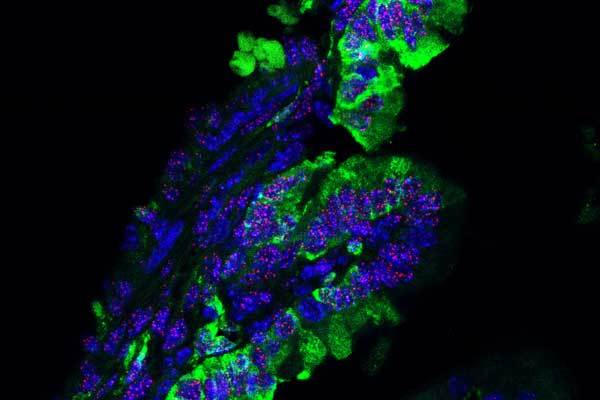Delaying aging, but without 'touching' the genes. Possible or impossible? A group of scientists from the National Oncology Research Center (CNIO) has just shown that in mouse models, this 'dream' is viable. The team led by María Blasco, the director of the center, has achieved the first mice born with telomeres much longer than normal and with this, they not only extend their life expectancy, they are also more protected from diseases such as cancer and obesity .
In telomeres is the key. About 10 years ago, it was seen that these structures located at the ends of the chromosomes are shortening as the body ages. Its mission is to protect the cells, taking care as far as possible the integrity of the genetic information of the DNA. Each time the cells divide, telomeres shrink a bit, so one of the main characteristics of aging is the accumulation of short telomeres in the cells.
Until now, all interventions on telomere length were based on the alteration of gene expression. In fact, the Group of Telomeres and Telomer handle of the CNIO has already demonstrated in several works with mice that by activating the telomere elongating enzyme (telomerase), it was possible to avoid shortening the telomeres and in turn prolonging longevity, without effects secondary. This team of scientists managed to develop a gene therapy that promoted precisely the synthesis of telomerase.
The novelty is that for the first time you can significantly increase longevity without intervening on genes . How? "Keeping in a culture plate pluripotent embryonic cells (or ES cells, from which an entire organism is generated) for more cell divisions. By having these cells in division for longer, telomeres lengthen beyond normal in the species ", explains to ELMUNDO.ES Blasco, the intellectual author of the work that has just seen the light in the magazine 'Nature Communications'.
As a consequence, mice that are born from these pluripotent cells have longer telemeters and also live longer. Specifically, they are 13% longer. And even more: " They have less cancer and less obesity . That is, it is not a treatment we give to mice, but we already generate them with telomeres much longer than normal," says the director of the CNIO.
Researchers have observed that these mice are thinner because they accumulate less fat. According to the study, "they also show lower metabolic aging, with lower levels of cholesterol and LDL (bad fat) and better tolerance to insulin and glucose. In addition, the damage to their DNA as they age is better and they have a lower function of their mitochondria. "
In conclusion, "these unprecedented results demonstrate that the longer than normal telomeres in a given species are not pernicious, but rather the opposite: they have beneficial effects, such as greater longevity, delayed metabolic age and less cancer," Blasco points out.
In short, the finding opens the way to prolong longevity without modifying the genes of the organism. "It has been enough to extend the time in which embryonic cells remain in pluripotency", since in this process, there are certain biochemical marks that facilitate telomere elongation by telomerase. " The result: a generation of mice with telomeres. hyper-long, longer and more protected from cancer and obesity , and without any genetic manipulation.
The next step, says María Blasco, would be to "generate a strain of mice with hyperlarge telomeres and see if their descendants also keep them hyper-long or on the contrary, they return to normal after a few generations. This would tell us if it is a feature heritable".
Although the objective of his research "is not to apply it in humans [...] the results suggest that it may be interesting to study the telomeres of embryos and see if there are correlations with pathologies that can occur in adult life born with this technique".
According to the criteria of The Trust Project
Know more- Science and Health
- Health
Oncology New approach to advanced ovarian cancer
Boticaria García Ibuprofen-drama: why they no longer give you your favorite medication without a prescription
Health Removal of several Acuvue contact lenses due to risk of corneal abrasion

